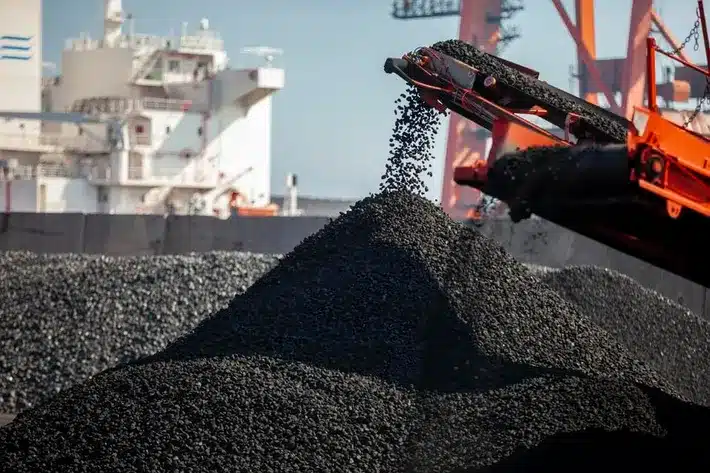Steel Industry Capacity Expansion: Report Forecasts Significant Rise in Coking Coal Demand

India is poised to significantly increase its reliance on coking coal over the next five years, driven by the nation’s ambitious target of achieving 300 million tonnes (MT) of steel production capacity by 2030. A recent report by EY Parthenon, in collaboration with the Indian Steel Association (ISA), reveals that the steel sector consumes 95 percent of the country’s coking coal, primarily through the blast furnace-basic oxygen furnace (BF-BOF) method. This surge in demand is expected to elevate coking coal consumption from 87 MT in FY25 to approximately 135 MT by FY30.
Government Initiatives to Boost Domestic Production
To meet the rising demand for coking coal, the Indian government is advancing its Atmanirbhar Coal Mission under the Mission Coking Coal initiative. This plan aims to enhance domestic coal production to 140 MT by 2030, with projections of 105 MT coming from Coal India and 35 MT from private sector allocations. Additionally, the initiative seeks to increase washed coal capacity to 15 MT. The government is implementing various policy measures, including allowing 100 percent foreign direct investment (FDI) in mining, introducing revenue-sharing auctions, and providing capital subsidies of up to 30 percent for coal washeries. These steps are expected to reduce India’s reliance on coal imports from nearly 90 percent today to below 80 percent by the end of the decade.
Decarbonization and Cleaner Technologies
The report emphasizes the urgent need for decarbonization in the steel industry, which is responsible for 12 percent of India’s greenhouse gas emissions and up to 8 percent globally. Vinayak Vipul, a partner at EY Parthenon, highlighted the importance of beneficiation and diversification in coal sourcing. He stated that India must accelerate beneficiation to maximize the value of its coal reserves, diversify its sourcing to mitigate risks, and invest in technologies that support low-carbon steel production. Cleaner technologies, such as green hydrogen-based direct reduced iron (DRI), scrap-fed electric arc furnaces, and carbon capture, are deemed essential for achieving the steel industry’s net-zero emissions goal by 2070.
Strategic Importance of Reliable Coal Supplies
Naveen Jindal, President of the ISA, underscored the strategic importance of securing reliable coal supplies for India’s steel industry. He noted that the sector is entering a transformative phase, driven by increasing domestic demand and heightened global competition. Coking coal remains a critical component of steel production, and ensuring a consistent, high-quality supply is vital for national growth. Despite fluctuations in domestic coal production, the government’s push for self-sufficiency continues. Recent data indicates a slight decline of 0.6 percent in India’s coal output to 381.75 MT from April to August this year, although August production saw an increase of over 11 percent compared to the previous year.
Future Outlook and Collaborative Efforts
The report concludes that establishing joint ventures between industry and government, expanding washery infrastructure, creating strategic stockpiles at ports, and forming partnerships with overseas mines will be crucial for securing India’s coal supply chains. These efforts aim to balance growth with sustainability, ensuring that the steel industry can meet its ambitious production targets while addressing environmental concerns. As India navigates this critical juncture, the collaboration between various stakeholders will play a pivotal role in shaping the future of the steel sector and its impact on the economy.
Observer Voice is the one stop site for National, International news, Sports, Editor’s Choice, Art/culture contents, Quotes and much more. We also cover historical contents. Historical contents includes World History, Indian History, and what happened today. The website also covers Entertainment across the India and World.
Follow Us on Twitter, Instagram, Facebook, & LinkedIn

